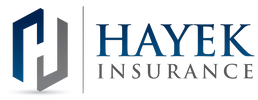Hayek Insurance Blog
|
|
Navigating the world of health insurance can be daunting, especially when you encounter terms like HMO, PPO, EPO, and others. Understanding the different types of health insurance plans is crucial for selecting the one that best suits your healthcare needs and budget. In this blog, we'll demystify these common health insurance plan types and explain their key features. 1. Health Maintenance Organization (HMO):
How It Works: HMO plans require you to choose a primary care physician (PCP) and obtain referrals from them to see specialists. You must typically receive care within the HMO network for coverage. Pros: Lower premiums and predictable out-of-pocket costs. Ideal for individuals who prefer coordinated care and don't need out-of-network coverage. Cons: Limited choice of healthcare providers and less flexibility to see specialists without referrals. 2. Preferred Provider Organization (PPO): How It Works: PPO plans offer more flexibility. You can see any healthcare provider, but you'll pay less if you use in-network providers. No referrals are needed to see specialists. Pros: Greater provider choice, no PCP requirement, and some out-of-network coverage. Cons: Higher premiums and out-of-pocket costs if you choose out-of-network care. 3. Exclusive Provider Organization (EPO): How It Works: EPO plans combine features of HMO and PPO plans. You must use in-network providers, but referrals are not required to see specialists. Pros: Moderate premiums, no PCP requirement, and no need for referrals to see specialists. Cons: Limited out-of-network coverage, similar to HMOs. 4. Point of Service (POS): How It Works: POS plans blend elements of HMO and PPO plans. You'll choose a PCP and need referrals for specialists. In-network care is encouraged, but you can see out-of-network providers at a higher cost. Pros: Moderate premiums, coordinated care with a PCP, and some out-of-network coverage. Cons: Limited out-of-network coverage and the need for referrals. 5. High Deductible Health Plan (HDHP): How It Works: HDHPs come with high deductibles and lower premiums. They are often paired with Health Savings Accounts (HSAs) for tax advantages. You'll pay more out of pocket before insurance kicks in. Pros: Lower premiums, tax benefits with HSAs, and potential for long-term savings. Cons: Higher upfront costs and significant out-of-pocket expenses until you reach the deductible. 6. Catastrophic Health Insurance: How It Works: Catastrophic plans are designed for young, healthy individuals. They have low premiums but high deductibles. They provide essential coverage for severe illnesses or accidents. Pros: Very low premiums and protection against major medical expenses. Cons: Limited coverage for routine care, high deductible. 7. Medicare and Medicaid: How They Work: Medicare is a federal program for seniors and certain individuals with disabilities. Medicaid is a joint federal and state program for low-income individuals and families. Pros: Provides health coverage for eligible individuals and seniors. Cons: Eligibility criteria and benefits vary by program and state. Choosing the right health insurance plan depends on your healthcare needs, budget, and preferences. When selecting a plan, consider factors like premiums, deductibles, provider networks, and the types of services covered. Consult with an insurance expert or your employer's HR department for personalized guidance. Understanding the differences between HMOs, PPOs, EPOs, and other plan types is the first step toward making an informed decision about your healthcare coverage. At Hayek Insurance, we do our best in making sure that our clients are well-protected with affordable and comprehensive policies. We make sure to go the extra mile to help you with your needs. To learn more about how we can help you, please contact our agency at (805) 496-8835 or Click Here to request a free quote. Disclaimer: The information presented in this blog is intended for informational purposes only and should not be considered as professional advice. It is crucial to consult with a qualified insurance agent or professional for personalized advice tailored to your specific circumstances. They can provide expert guidance and help you make informed decisions regarding your insurance needs.
0 Comments
Leave a Reply. |
Contact Us
(805) 496-8835 Archives
July 2024
Categories
All
|


 RSS Feed
RSS Feed